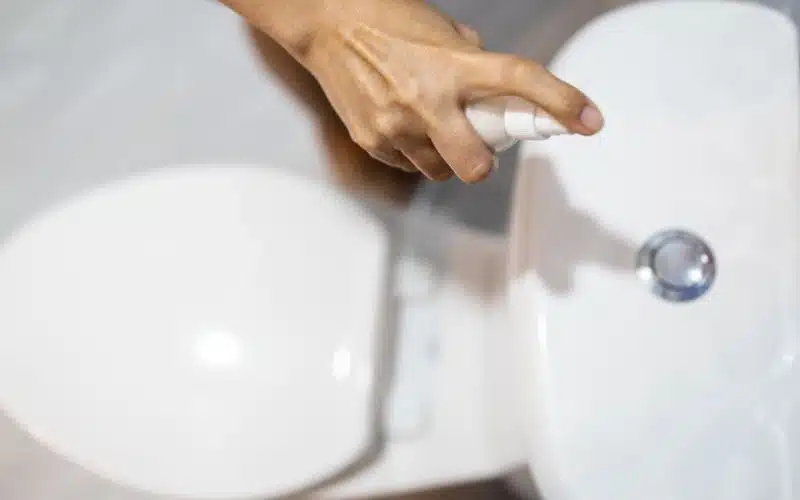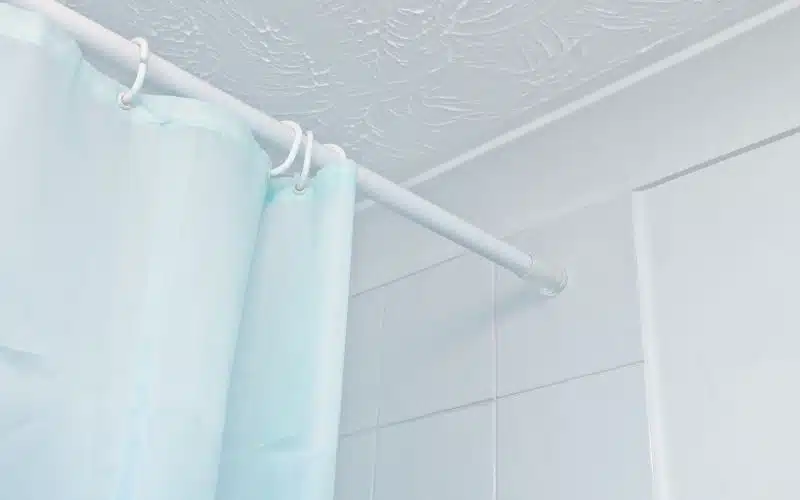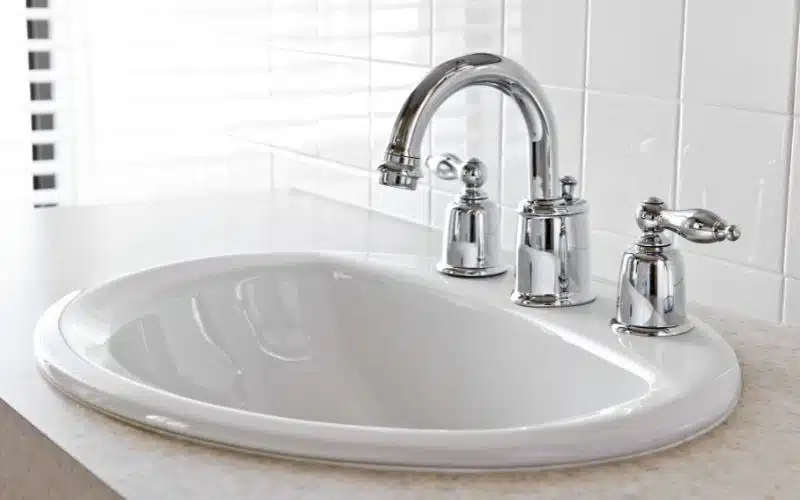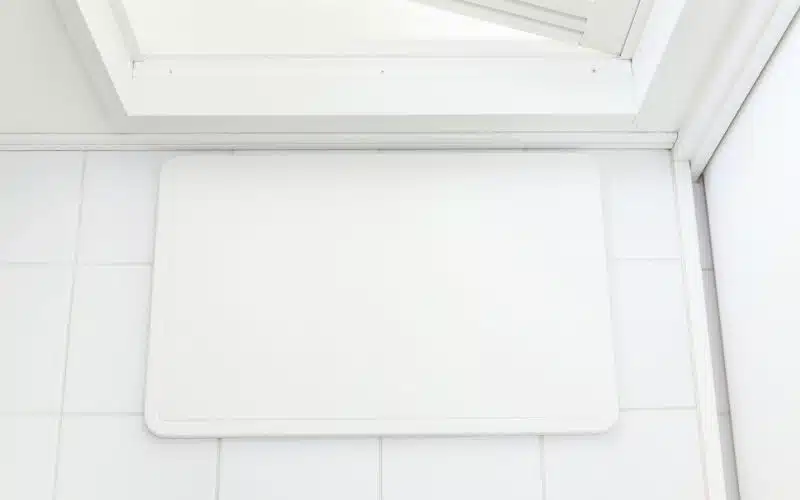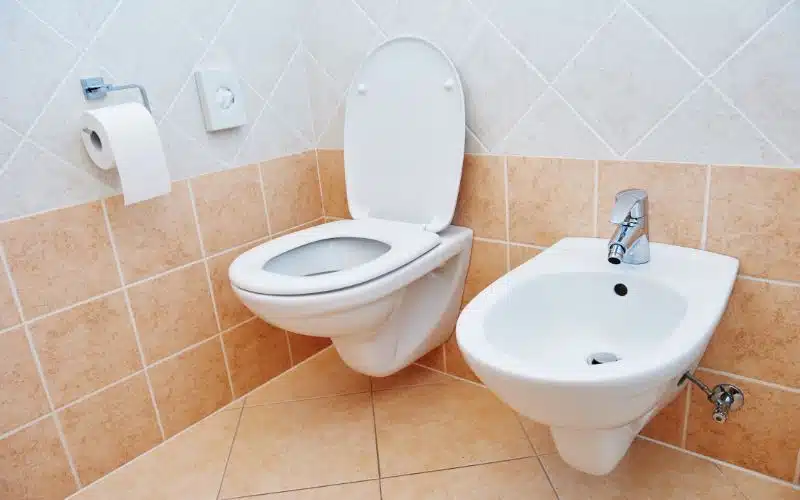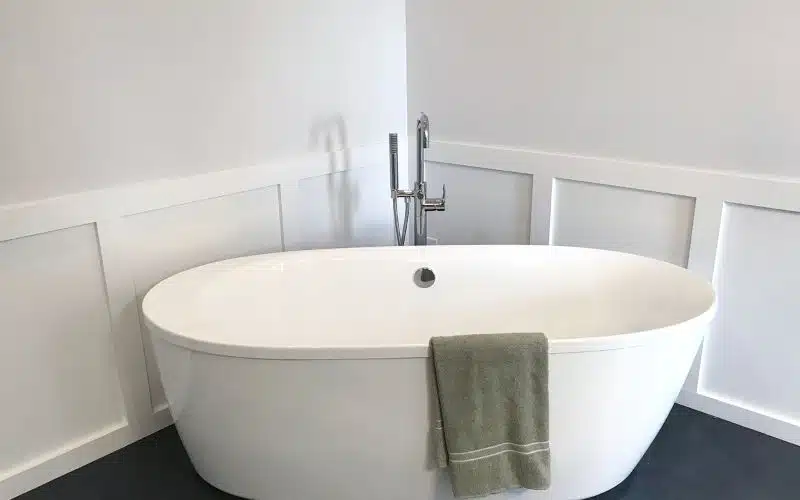When you turn on the shower, hearing it sound like a tea kettle can be a little unsettling. A noisy shower is anything but soothing, and it can indicate that the plumbing for your shower isn’t working correctly in one or more of its various parts.
Your shower has a valve that You can adjust with the faucet handle. The amount of cold and hot water that regulates together in your shower is controlled by this valve. The valve also helps achieve a temperature that is warm but not scorching. When this valve ages or degrades, it starts to make a kettle shower sound.
Why Does My Electric Shower Sound Like a Kettle?
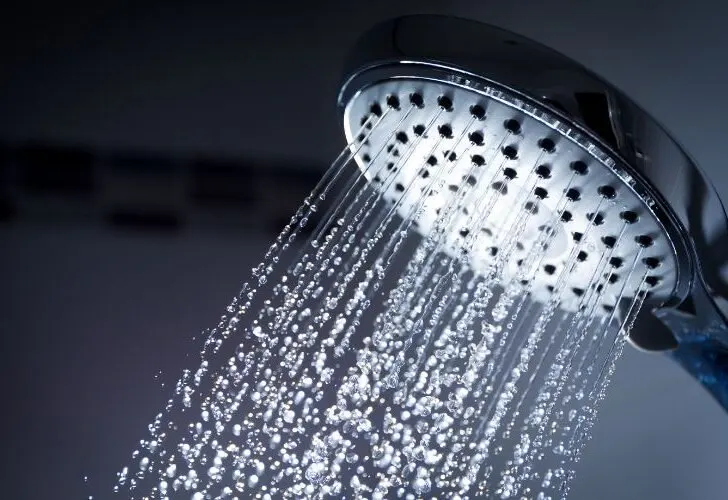
When the power to an electric shower is turned off, and you hear sounds like a kettle boiling, it indicates that a switch or relay is trapped in its position.
This sustains the energy to an element and could eventually lead to the failure of the thermal cutout switch.
Check and repair the faulty switch or relay if this is the condition. Always turn off the shower at the isolating switch whenever it is not in use.
Most times, a clog or buildup in the pump usually is the cause of a buzzing or clicking noise in your electric shower.
Your home’s water system may occasionally become clogged with a little blockade that may block or obstruct a filter.
The pressure from this produces the kettle sound you get when taking a shower.
Why Does My Shower Sound Like a Kettle When Off?
When you switch it off, the disturbing noise from your shower is called a water hammer.
When a shower pump is shut off and there is high water pressure in the pipes, this causes a loud crash known as a “water hammer.”
Water hammer is sometimes so bad that it harms plumbing parts. This is because the sound produced results from a shock wave generated by high water pressure.
And since this wave has no outlet, it sometimes collides with a solid object, which can be harmful.
The best way to handle this problem is to consult a plumber because sometimes the problem originates from a gasket that lowers the water pressure when it enters your house.
Water hammer arresters can be inserted in the plumbing line and work well when positioned correctly.
Water hammer arresters absorb the increasing pressure before it builds up to the point that it collides with other plumbing fixtures in your system.
Getting a professional is advisable because a skilled plumber can typically listen to your pipes, rapidly identify the problem, and take the best action for your situation.
10 Reasons Why Your Shower Sounds Like a Kettle When Off
When your shower starts developing faults and producing funny noises like a kettle, it results from some problems.
Some causes of shower noises are explained below.
#1. Broken Or Bad Diverter Valve
If your bathtub and shower are combined, the faucet handle can be adjusted to change the direction of water flow from the tub spout to the showerhead and vice versa.
This is done with the help of a diverter valve. Unfortunately, when this valve is faulty or broken, it can also make a disturbing noise.
#2. A Clogged Shower Cartridge
A cartridge is a valve that is present in your shower. An excellent and pleasurable shower depends on managing the water flow and temperature. A cartridge valve is responsible for making this possible.
Sometimes material obstructs the cartridge holes, and this can cause a disturbing sound like a tea kettle.
Limescale removal is frequently a do-it-yourself project, but in extreme cases, the presence of a plumber is needed.
#3. An Old Or Broken Shower Handle Valve
In addition to the standard shower’s single spinning knob, there are shower valves. These valves primarily serve two purposes.
One involves regulating the water’s pressure, while the other involves regulating and adjusting the temperature of the water from the shower.
A shower handle valve works by rotating or drawing out the handle. This valve can wear out gradually with time, and it can result in producing sounds like a tea kettle.
#4. A Clogged Shower Head Pipe
One of the functions of a shower head is to pressurize and generate a steady stream of water. The arm of the shower head is attached to the water pipes inside the wall.
The arm is a short metal pipe that emerges from the water pipes, passes through the wall, and then attaches to the shower head. It functions as the water’s passageway.
Limescale can build up in the pipe leading to your showerhead and inside the showerhead itself. The interior of the pipe gets smaller as more mineral deposits accumulate.
A high-pitched shriek may be produced by the flow of water pushing through this constrained opening at a rapid rate.
You can solve this problem by removing your shower head and cleaning the pipe. White vinegar works better and helps dissolve the minerals inside without damaging the metal.
#5. Old Shower Head
Showerheads are not indestructible; nothing is. The internal components may eventually deteriorate due to use and limescale development.
In addition, a specific showerhead could not last as long in your home as it would in another home, depending on the mineral makeup of your water supply. This is because of the type of water that is accessible.
Shower heads need to be changed on average every 6 to 8 months, approximately twice a year. Most people are ignorant of this, but doing so has many benefits.
#6. Water Pressure
The buildup of water pressure in the pipes, which either dirt can bring on in the pipes or friction produced when the water goes through bends in the pipe, can be why your shower makes a whirring sound.
You can keep the water pressure lower if lowering the water pressure in your pipes fixes the problem.
You can also try fixing a low-flow shower head on the shower to raise the water pressure back to its original level.
#7. A Damaged Shower Pump
The most common cause of a squeal or whine is damage to the pump’s bearings or impellers.
The pump won’t be able to produce the power necessary to move water if the bearings start to wear or the impeller has been harmed by debris.
You’ll hear this screech due to the pump’s inability to move water effectively. The noise is an important indication that the pump has to be changed.
#8. A Noisy Vibrational Shower Pump
Poor installation is frequently to blame for a shower that vibrates loudly throughout your house.
Either the plumber incorrectly placed the pump on wooden floorboards. Or, they may not have appropriately fastened the pump to a surface.
#9. Paintings On Pipes Or Shower Head
Painted showerheads may cause annoyance or kettle sounds. If this occurs, the air or gear water flow has been blocked.
All you have to do to address the problem is remove any paint that may be the source of the blockage.
#10. Slim Pipes
A noisy shower may result from thin pipes; detecting and fixing this is easy. First, attach a larger pipe to your existing one to reduce pressure if the water pressure exceeds. This will help in decreasing the noise.
What Does It Mean When My Shower Makes a Noise?
Any sound in your shower results from a buildup or blockage. Residual junk starts building up from the pipes until it makes its way to the shower.
The interior of the pipe gets smaller as more mineral deposit takes place. Finally, a steep shriek may be produced by the flow of water forcing through this constrained passage at a fast pace.
Sometimes your shower produces annoying noises due to lack of maintenance. Just like a car, the components of your shower need replacement and maintenance too.
When you fail to do this, your shower generates a lot of faults.
How Do You Fix a Whistling Shower?
The cause of any whistling, whining, roaring, or kettle shower sound is pressure or a limitation.
There are many potential causes for this noise, including high water pressure, an obstruction in a shower valve, particle buildup in the shower head, and other causes.
Turn on the water while removing the showerhead. Soak the shower head in white vinegar to clean it.
Then, use a toothpick to open the little holes, flush them with running water and fix them back.
If there isn’t any noise, you can be sure the showerhead has no problem. But if the noise persists, then you will need to replace it.
Getting your shower’s valves checked and replacing them might be challenging. Any errors made in components in the wall behind your shower could result in a leak into the floor below.
You must contact an experienced plumber to carry out these repairs if you want to prevent more water damage.
Below is a table for shower repair tools.
| Tool | Function |
|---|---|
| Stem and cartridge wrench | Used for removing stems and cartridges of faucets, tubs, and shower valves made of plastic and metal. |
| A garbage disposal wrench | It is used to remove a blockage from a blocked drain unit manually. |
| A four-way silicon key | It is used to unlock hose bibs that are tamper-proof. |
| P.O. Plug wrench | It is used to secure the pop-up drain stopper during installation. |
| Long stem residents tool | They are used for refinishing compression-style faucet seats. |
| Faucet seat wrenches | Used to set up or take down bathroom faucets. |
| Handle sleeve puller kitIt is used to remove the brass compression rings that can be found in different compression fittings. | |
| Four-inch seat puller | It pulls press-fit components such as pulleys, tiny gears, and bearings. |
| Shower valve socket wrenches | It is used to install and remove tub fittings, bolts, and shower valves. |
| Pliers | Used for grappling pipes firmly. |
Conclusion
Hearing a sound like a kettle boiling in your shower indicates your shower needs maintenance or something is damaged.
Sometimes it can be a result of high water pressure. However, the type of water available in your home also affects the lifespan of your shower.
